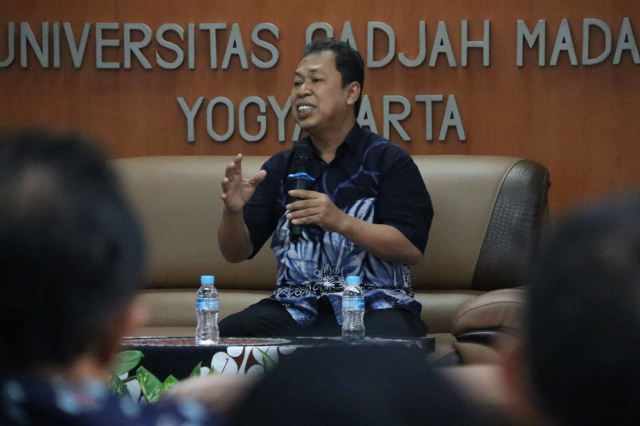 How does Pancasila live on the people’s campus and respond to the challenges of the times? This question served as the main thread in the archival talk show themed “Pancasila and the People’s Campus: UGM in the Trajectory of History and the Future”, organized by the UGM Library and Archives in collaboration with the UGM Museum, on Thursday (June 26). The event was held in the Seminar Room, 2nd Floor, Building L1, and was part of the series of activities in the Gadjah Mada Library and Archives Fair (GMLAF) 2025.
How does Pancasila live on the people’s campus and respond to the challenges of the times? This question served as the main thread in the archival talk show themed “Pancasila and the People’s Campus: UGM in the Trajectory of History and the Future”, organized by the UGM Library and Archives in collaboration with the UGM Museum, on Thursday (June 26). The event was held in the Seminar Room, 2nd Floor, Building L1, and was part of the series of activities in the Gadjah Mada Library and Archives Fair (GMLAF) 2025.
The event opened with remarks by Dr. Tjahjono Prasodjo, M.A., Head of the UGM Museum, who emphasized the importance of archives as markers of institutional identity and as a bridge of values between the past and the future. He stated that initiatives such as this serve as an effective medium to reinterpret the foundational values of the nation in today’s context, with the campus acting as a living space for the ideology of Pancasila.
The talk show featured two keynote speakers: Dr. Heri Santoso, S.S., M.Hum., a lecturer in Pancasila Philosophy from the UGM Doctoral Program in Philosophy, and Baha’uddin, S.S., M.Hum., a lecturer in History at the Faculty of Cultural Sciences, UGM. The discussion was moderated by Dr. Herman Setyawan, M.Sc.
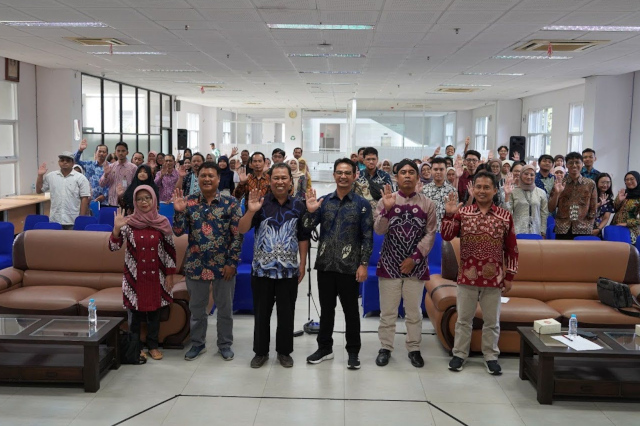 In his presentation, Dr. Heri Santoso emphasized that Pancasila must not remain as a normative document or institutional jargon. “Pancasila must become a way of thinking, a way of behaving, and a way of acting in academic and social life. It is an ethical energy that animates campus activities,” he asserted.
In his presentation, Dr. Heri Santoso emphasized that Pancasila must not remain as a normative document or institutional jargon. “Pancasila must become a way of thinking, a way of behaving, and a way of acting in academic and social life. It is an ethical energy that animates campus activities,” he asserted.
Meanwhile, Baha’uddin highlighted the historical dimension of UGM, which from its very founding has become a campus of struggle and cultural resistance. “UGM was founded amid a national crisis, and since then it has positioned itself as the people’s campus. This identity must continuously be preserved by critically and historically upholding the values of Pancasila,” he said.
The speakers highlighted UGM’s role as a national university since 1949 that brings Pancasila to life in practice, ranging from community service in remote areas to the symbolism of campus identity. They also discussed the integration of Pancasila values into the curriculum, academic ethics, and its relevance in the global arena as a moral compass and vision of nationhood.
The event was attended by guests from various backgrounds, including representatives from the Yogyakarta Provincial Library and Archives Office, the Yogyakarta City Library and Archives Service, the Library of Sanata Dharma University, the Head of the Archival and Information Records Management Study Program at the UGM Vocational School, as well as archivists, librarians, museum curators, and UGM students.
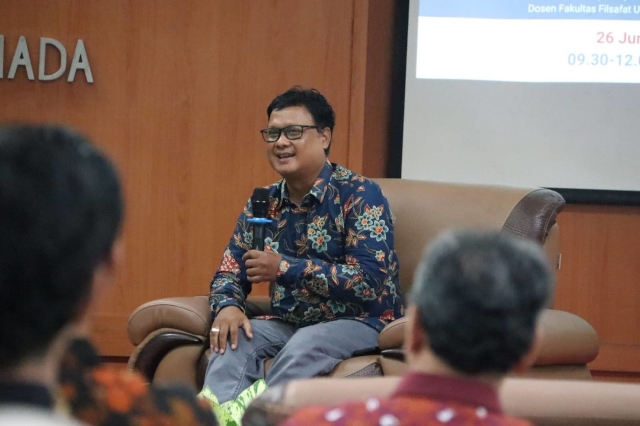
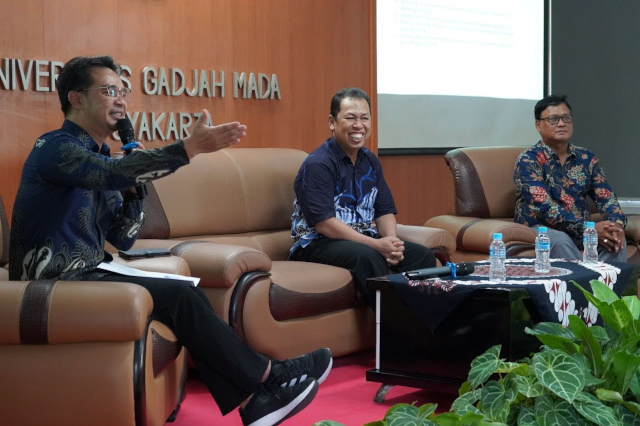
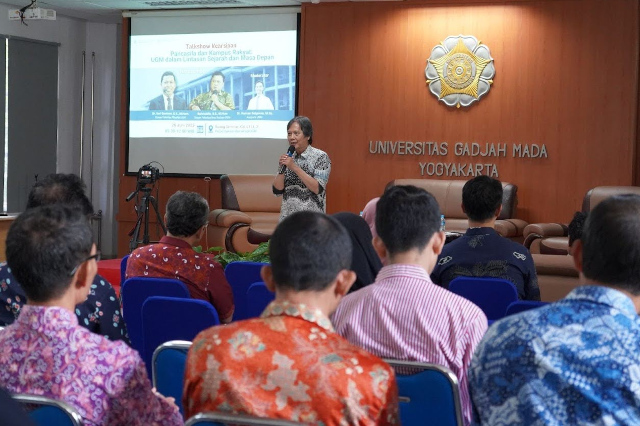
This talk show reflects UGM’s commitment to the Sustainable Development Goals (SDGs), especially SDG 4 (Quality Education) through the cultivation of national values in higher education, SDG 16 (Peace, Justice, and Strong Institutions) through value-based institutional strengthening, and SDG 11 (Sustainable Cities and Communities) through the preservation of collective memory and campus cultural heritage.
The talk show became a reflective space for the academic community to reaffirm UGM’s commitment to nurturing national values, safeguarding institutional integrity, and enlivening Pancasila as the intellectual, ethical, and social foundation of the university.
Contributor: Wasilatul Baroroh
